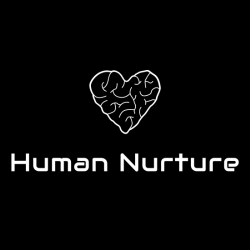Episodes

Monday Feb 21, 2022
Monday Feb 21, 2022
A NOTE FROM JASON:
Hello again, this is Jason Brand, the host of the Human Nurture Podcast. I'm a couples therapist in Berkeley, California and as you know, in this season, we've been exploring the “how to” of couples therapy.
This episode is a little bit of a departure from the usual format. Editing my own interviews always comes along with some discomfort. After 30 some-odd episodes, I've gotten used to some of that discomfort, the discomfort of listening to myself and imagining how you might be hearing it. But as I edited the two interviews I recorded with John Guy, I noticed a different kind of discomfort and it was clearly because we were discussing race.
I tried putting this discomfort into words with colleagues, however, I felt like something was missing in the conversation. With my colleagues of color, I felt like I was asking something of them that they couldn't really give to me, a kind of seal of approval that I was doing a good job. And with my white colleagues, I felt like the conversation kind of fell apart and just came back to this well-worn idea of “yeah, talking about race is challenging.”
None of this is a comment about my colleagues. I see it 100% is my own need to do some thinking and to open up some locked areas inside myself.
So I was settling into the idea that it was best just to leave this, that I'd take it up on my own, but not included as part of the podcast and that's when an article arrived from Inga Gentile. (You will remember Inga from a couple episodes back, please check out that episode, it's wonderful.)
The 2021 article entitled, “The White Man in the Room: Finding My Position as a White Therapist” was published by the British Journal of Psychotherapy and is written by Daniel Weir. It gave me a way to move forward and express some of the things that I was thinking about and wanted to bring to the podcast.
The article helped me to see that my discomfort was most pronounced in the brief moments when I had to define my own racial identity as a white man. I can't say that I even noticed this discomfort in the interviews with John, I only saw it when I had to create something coherent in the editing process and only then it was in these brief flashes that I caught of myself.
The article gave me some different tools for thinking about why it might be hard to see my own identity. It also makes some great links to psychoanalytic ideas and provides some perspectives that I found immediately useful.
So who is Daniel Weir? He's in private practice in Southwest London, this paper was written as part of his qualifying to become a psychoanalytic psychotherapist in 2020. I'm excited to have him on the show. He also said that you can email him directly if you want to read his paper.
His email is contact@daniel-weir.com.


No comments yet. Be the first to say something!